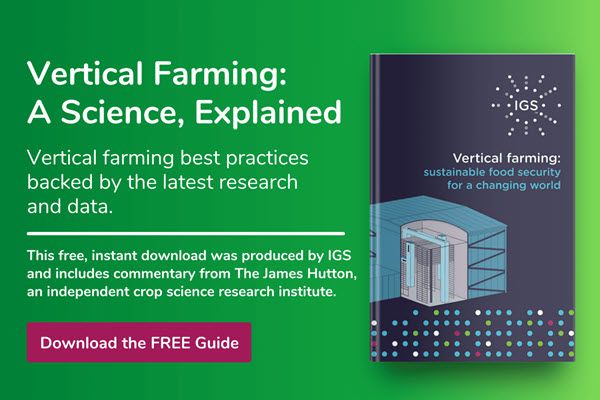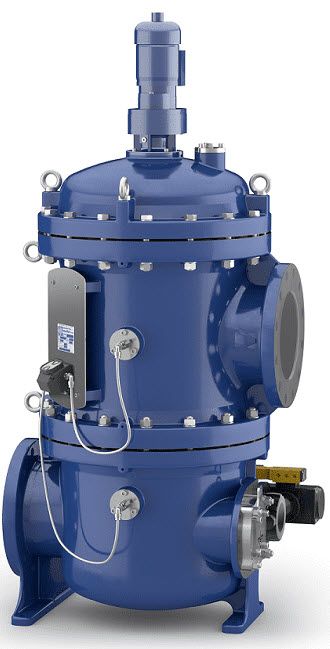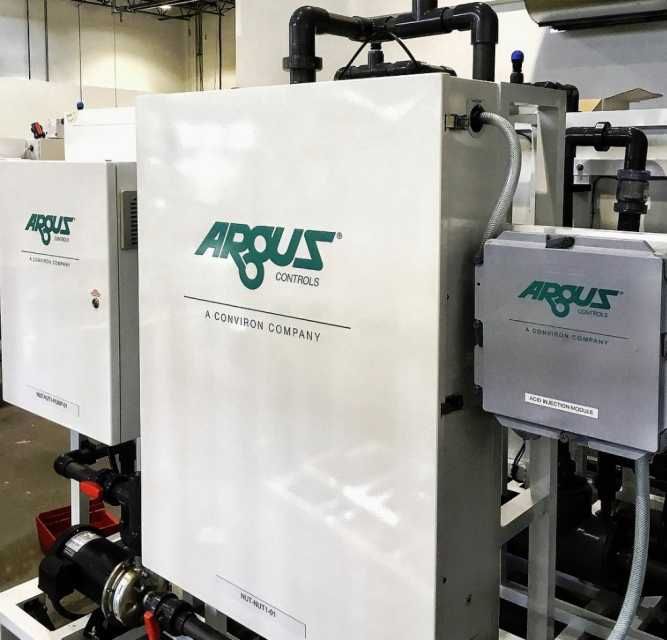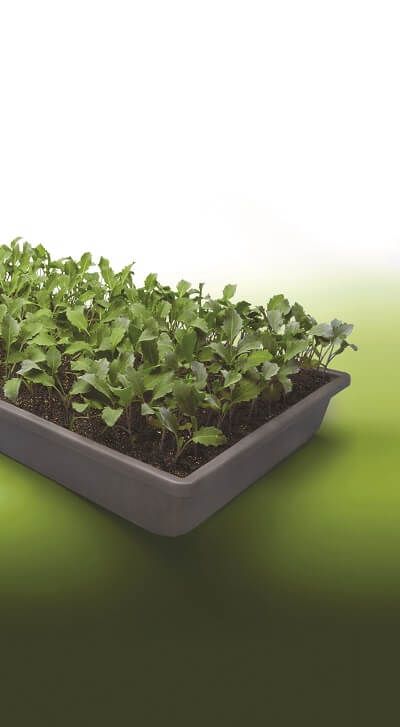Article Sourced From Greenhouse Grower magazine.
By Alex Fermon, Product Marketing Manager with Argus Controls, a founding member of the Sustainable Cannabis Coalition.
The United Nations estimates that by 2025, two-thirds of the world’s population will be living in water-stressed countries. With roughly 70% of the freshwater around the world being used for agriculture — a number that could climb to 90% in developing countries by 2030 — the need for efficient water management and sustainable irrigation is at a critical point.
Sustainable irrigation is defined as, “the rational practice of all activities related with the irrigation of plants, whether in the areas of horticulture, landscape, and ornamentals so that it helps to satisfy the respective survival and welfare needs of the present without compromising those of future generations.”
It considers the impacts of manufacturing and transportation of required equipment and materials, as well as incurred discharges and waste impacts.[1] For traditional horticulture and commercial agriculture, irrigation is a necessary process for plant growth and, although it can be done manually, automating this process could bring several benefits to growers.
Improving irrigation efficiency can contribute greatly to reducing production costs, making the industry more competitive and ultimately sustainable. Through proper irrigation, average yields can be maintained (or increased) while minimizing environmental impacts caused by excess applied water and subsequent agrichemical leaching.[2]
Fertigation as a Bridge to Sustainability
Fertigation is the process of delivering nutrients and water to a plant through automated irrigation. The goal is to not only produce a crop with higher yields, but to also run a more streamlined and sustainable operation. An automated system eliminates the need for constant monitoring and watering of plants and therefore will reduce overall workforce demands. Automation will also allow for consistency in quality that hand-watering cannot.
There are two common methods of delivering fertilizers through an irrigation system for sustainable production: dilute tank control and in-line injection.
Whether you select dilute tank feeding or an in-line injection system, there is a range of options for automating the nutrient dosing process. While automated dosing systems offer many management, productivity, and sustainability features (including reduced fertilizer and water runoff and better crop quality), they tend to be more complex and cost-prohibitive.
Consider a dilute tank control system when:
- The whole crop can be administered with a single feed solution.
- The dilute feed composition and strength (EC) do not change often.
- The pH of water does not need frequent adjustment.
Consider an in-line injection system when:
- Irrigation scheduling and nutrient dosing are integrated.
- Supplying more than one nutrient formulation on the same irrigation system (different crop requirements).
- The ability is needed to vary the feeding strength (EC) without having to prepare new stock solutions.
Some automated environmental control systems only manage the nutrient dosing equipment, while other horticulture nutrient systems can integrate irrigation scheduling with nutrient dosing activities. An automated fertigation system can be integrated with the facility’s environmental control system where it can be monitored and managed from a centralized user interface along with all other controlled processes within the grow operation.
Fertigation equipment and systems vary with each application and should be capable of adapting to the design and operation of the overall facility. This may include controls and monitoring for:
- Tank levels
- EC
- pH
- Acid/base dosing equipment
- Water temperature
- Soil moisture levels
- Leaching rates (over drain)
- Nutrient dosing equipment
- Pump controls
- Irrigation zone valves
- Line purging
- Recirculation management
- Water treatment equipment (filters, pasteurizers, ozone, UV, etc.)
There are several factors to consider when planning, designing, and automating an irrigation or fertigation solution in a horticultural facility. Planning for sustainability will result in more efficient use of available resources allowing for long-term viability and success.
As the horticulture industry continues to evolve, so do sustainability solutions like greenhouse automation systems. The future of irrigation controls promises more intricate, intuitive systems with advanced sensors to support more sustainable practices.
REFERENCES:
[1] What we understand for sustainable irrigation. “Asociacion del Riego Sostenible”. Available at: http://www.riego.org/asociacion-riego-sostenible/la-asociacion/sustainable-irrigation-definition/ (Accessed: 29 January 2021).
[1] Munoz-Carpena, Dukes (2018) Automatic Irrigation Based on Soil Moisture for Vegetable Crops. University of Florida. Available at: https://edis.ifas.ufl.edu/ae354 (Accessed: 21 January 2021).
Neff, Jeff, “Automated Irrigation Techniques”. Available at: https://www.youtube.com/watch?v=IwWU9BxVJZ0/ (Accessed: 29 January 2021)








 New product line is 40% lighter while retaining trusted strength and durability of MFG’s fiber glass reinforced composite.
New product line is 40% lighter while retaining trusted strength and durability of MFG’s fiber glass reinforced composite. >>Dimensionally stable and exceptional structural strength
>>Dimensionally stable and exceptional structural strength
 From the beginning,
From the beginning,  We founded the company to miniaturize the semi-automation found in commercial-scale farms, at a fraction of the cost and designed it to be controlled via the cloud to allow for aggregated data collection.Today we’ve built and deployed that underlying technology on our fleet of distributed Micro-Farms in North America. We’re just getting started in our journey to apply our underlying technology to different vertical farming systems and in doing so expand the market for sustainable indoor farming.
We founded the company to miniaturize the semi-automation found in commercial-scale farms, at a fraction of the cost and designed it to be controlled via the cloud to allow for aggregated data collection.Today we’ve built and deployed that underlying technology on our fleet of distributed Micro-Farms in North America. We’re just getting started in our journey to apply our underlying technology to different vertical farming systems and in doing so expand the market for sustainable indoor farming. We’re accelerating the commercialization of indoor farming service with hundreds of Micro-Farms being installed in foodservice operations across North America. We’re confident in our technology’s ability to deliver an unparalleled growing experience and it’s exciting to see the data coming in from our growing base of happy customers.
We’re accelerating the commercialization of indoor farming service with hundreds of Micro-Farms being installed in foodservice operations across North America. We’re confident in our technology’s ability to deliver an unparalleled growing experience and it’s exciting to see the data coming in from our growing base of happy customers.

 Our goal has always been to make vertical farming accessible to mainstream markets. We’re proving that it’s commercially viable with our foodservice partners and simultaneously we’re seeing the rapid expansion of the local food movement that’s driving a ton of innovations in the CEA space.
Our goal has always been to make vertical farming accessible to mainstream markets. We’re proving that it’s commercially viable with our foodservice partners and simultaneously we’re seeing the rapid expansion of the local food movement that’s driving a ton of innovations in the CEA space.